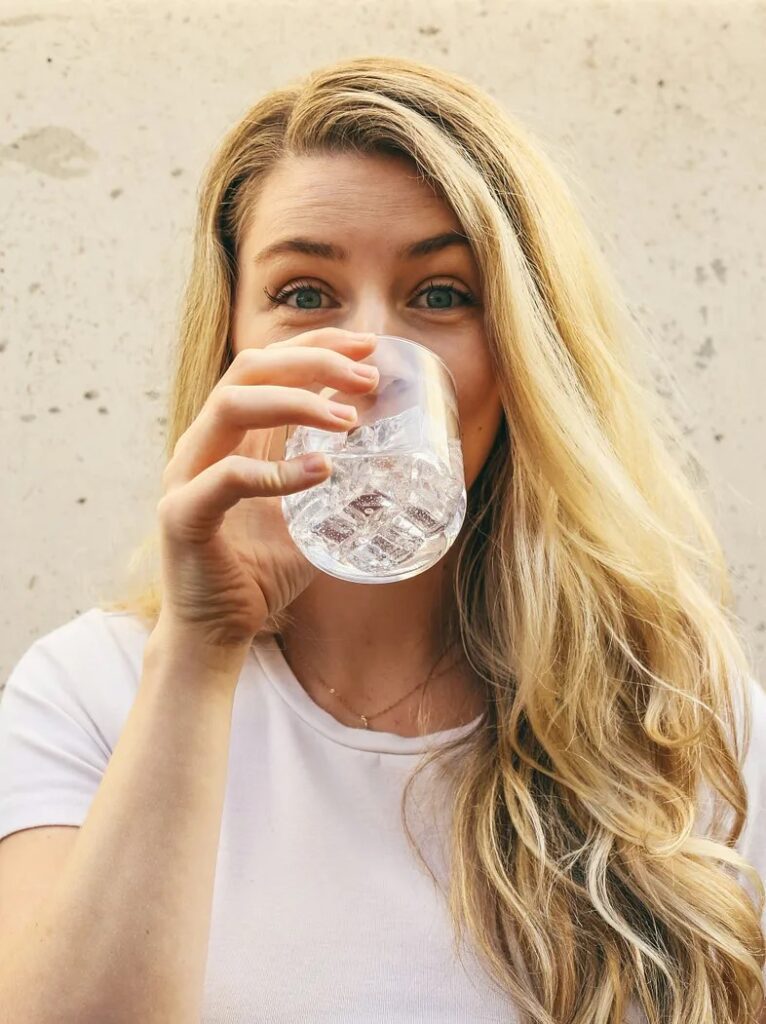Expelling four myths about water consumption.
You want me to drink how much water?
I have never been one of those people who have a water bottle surgically attached to their hand.
I have always subscribed to the theory that ‘What goes in must come out’ and have never really seen the sense in drinking water until you pop.
I know many people who do, and ‘hats off to them’.
It is probably because I like something in my water rather than just having it straight.
Recently, I had to have surgery, which required me to consume 3 liters (70 oz, depending on where in the world you are) of water every day for 6 weeks.
I was mortified.
For me, this was going to be my own form of water torture.
To make matters worse, I was told that anything added to the water didn’t really count, so tea, coffee, sugar drinks, etc., were a no-no.
I was determined not to affect my recovery, so I made a personal commitment to go through with it as instructed, but I was also going to test my theory and assumptions about water consumption.
How much water do you need?
Water makes up about 66% of the human body.
The U.S. National Academies of Sciences, Engineering, and Medicine have determined that a male’s adequate daily fluid intake is 15.5 cups (3.7 liters), and for a female, 11.5 cups (2.7 liters).
Various health gurus have translated this into the 8 X 8 rule: 8 x 8-ounce glasses of water /day.
A lot depends on your health status, weight, and activity level. There is even a formula to guestimate how much fluid you actually need:
Weight x 0.5 = oz. of water per day
For me, this was 180 lb (80 kg) x 0.5 = 90 oz or 2.6 liters/ day to stay adequately hydrated.
Dispelling the myths
I also wanted to explore if what I had been told about water consumption was true, so I researched common assumptions (myths) about water.
Myth #1: Only water counts! — Wrong!
I was told that water is water, and adulterated water does not count.
GOOD NEWS (well, for me anyway!):
Tea and coffee count as water intake.
Most types of tea contain small amounts of caffeine (a diuretic), but the levels depend on how long you brew it, how strong you have, and what type of tea it is.
Coffee contains higher amounts of caffeine and is therefore worse than tea, but as both contain water as their main ingredient, they both count as water intake.
Other drinks like iced tea, soft drinks, and fruit juices also count, but because they are high in sugar, they are more detrimental from a health perspective.
Myth # 2 — Drink more water to lose weight — Wrong!
Drinking large volumes of water to lose weight does not work. According to experts at Penn State University, hunger and hydration are controlled by different bodily pathways, and people mistake thirst for hunger.
Some studies found that consuming too much water can be dangerous and, under some circumstances, has resulted in deaths from over-diluting the blood.
Myth #3 — Bottled Water tastes better and is better for you — Wrong!
Many people believe that bottled water not only tastes better but is better for you because it is more purified.
(I am sure this myth was propagated by all those bottled water companies as part of their marketing campaigns).
In blind tests, most people can’t tell the difference between bottled and tap water. Some factors like the mineral content and the age of your pipes may affect the taste.
If you are high up in the hills, the water is undoubtedly better, but essentially, they are the same.
Some countries have such poor-quality water that bottled water is essential from a contamination perspective, but these are the exceptions.
Bottled waters contain high levels of microplastics that have negative health effects and accumulate over time in organs like the liver, kidneys, and intestine.
In one study, 11 widely available bottled water products from 9 countries showed that 93% of the 259 bottles tested contained microplastics.
Myth # 4 — Bottled water is better for the environment — Wrong!
In 2016 alone, the United States produced 4 billion pounds (1.8 billion kg) of bottled water using 4 billion pounds (1.8 billion kg) of plastic. The energy input required to produce that amount equals 64 million barrels of oil.
It is also estimated that only 20% of plastic bottles get recycled. The rest end up in waterways or landfills.
In the United States, one gallon (3.8 liters) of tap water costs roughly $0.005, while the same amount of bottled water obtained from combining single-serving water bottles costs around $9.47.
In Australia, drinking water is around $1.20/ tonne, and bottled water is around $3000. Australians spend over $280 million on bottled water each year.
To meet the recommended 8 x 8 glasses of water, it would cost $1800/ year, 26 times the price of filtered water and a staggering 3675 times that of tap water.
What Goes In Must Come Out
Armed with this background research, I was ready to tackle my water torture. What I found was quite interesting.
#1: I survived the water torture and made a full recovery from my operation — One tick for water therapy.
#2: What goes in does come out. I monitored my liquid intake (water and tea, coffee, etc.) and the number of times I went to the toilet daily. This was multiplied by 220 ml (approx. 7 oz)/ void, which is an average volume.
The graph shows that the average difference over the 40-day trial was 1.6 liters (550 ounces).

Allowing for some variation (it was not an exact experiment), this is close to the recommended average daily level (2 liters) required (just a couple of cups of tea short).
#3: Drinking all that water did nothing for weight loss. In fact, I put on a bit of weight (probably all that water sloshing around!).
#4: I know water is good for our health, our heart, muscles and joints, and even mental and physical capacity. For me, I will stick to the bulk of my water from tea and other forms of water, except if I am physically working out, but it was an interesting exercise.
Off to get a cup of tea!
Till next time, thanks for reading my story,
Calvin


